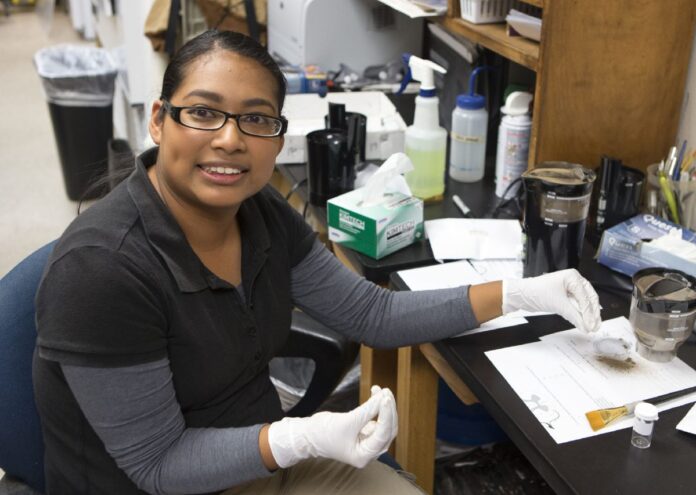BROWNSVILLE — As an intern with the National Oceanic and Atmospheric Administration Center for Coastal Fisheries and Habitat Research, Leticia Contreras gained valuable experience in October while collecting sediment samples and wading through estuarine reserves in North Carolina.
It was all in the name of research. And for Contreras, it was a great experience.
As a biology graduate student at The University of Texas Rio Grande Valley, she loves working in the field.
Sometimes that means spending long hours outdoors, generally in heat and humidity and surrounded by water.
“It was a busy and productive month,” Contreras said. “One of my responsibilities was to assist scientists and technicians at the CCFHR with an ongoing study of salt marsh carbon sequestration rates.”
Her NOAA mentor, Dr. Carolyn Currin, and her team of scientists trained Contreras to use some of their equipment, including a greenhouse gas analyzer to measure CO2 evolution in decomposing black mangrove litter.
“This experience enhanced my understanding and supports my master’s thesis – testing several hypotheses about factors influencing the rate of mangrove leaf litter decomposition,” Contreras said.
As she finishes her thesis, Contreras continues to collect leaves from mangrove trees in the Lower Laguna Madre.
In the laboratory, she compares the leaves’ decomposition process under varying salinity, temperature, nitrogen availability and water turbulence.
Contreras hopes her time spent at the fisheries and conducting research will help open a door to employment with NOAA after completing her master’s degree in December 2016.
“This is the work I want to do,” she said. “With my area of interest and research, I see myself living and working along the southeastern Atlantic Coast or the Gulf Coast.”





